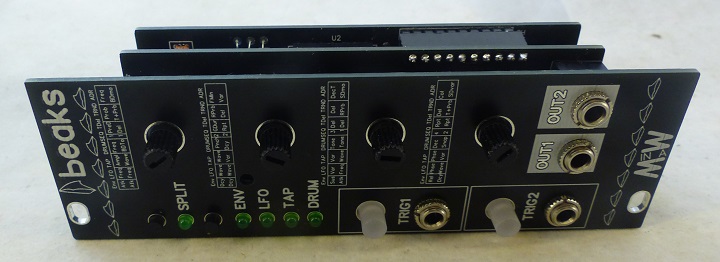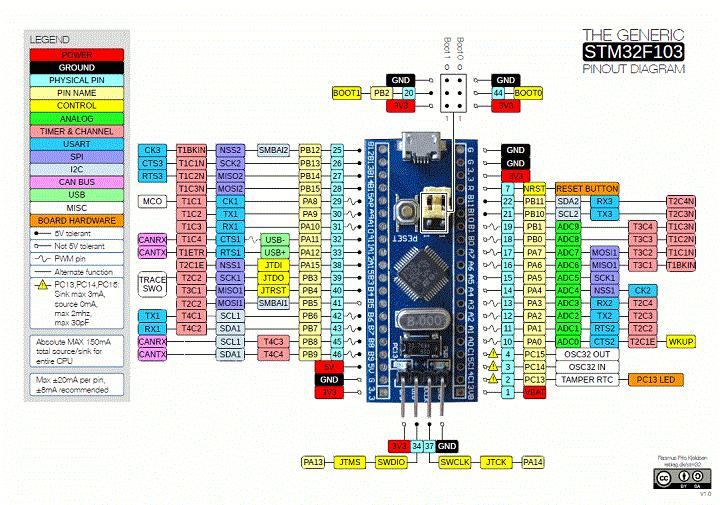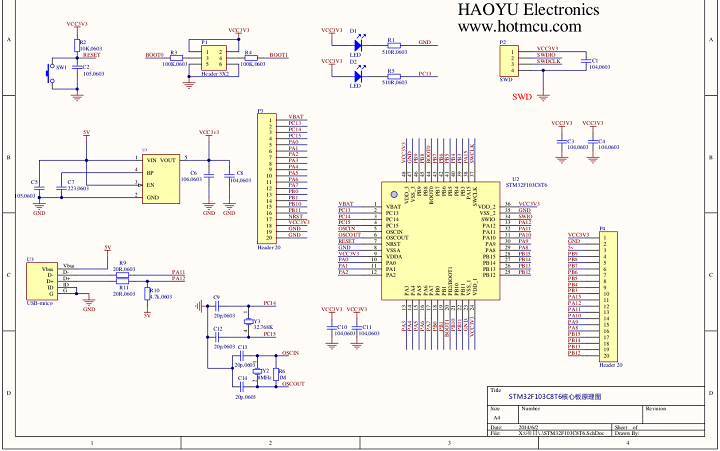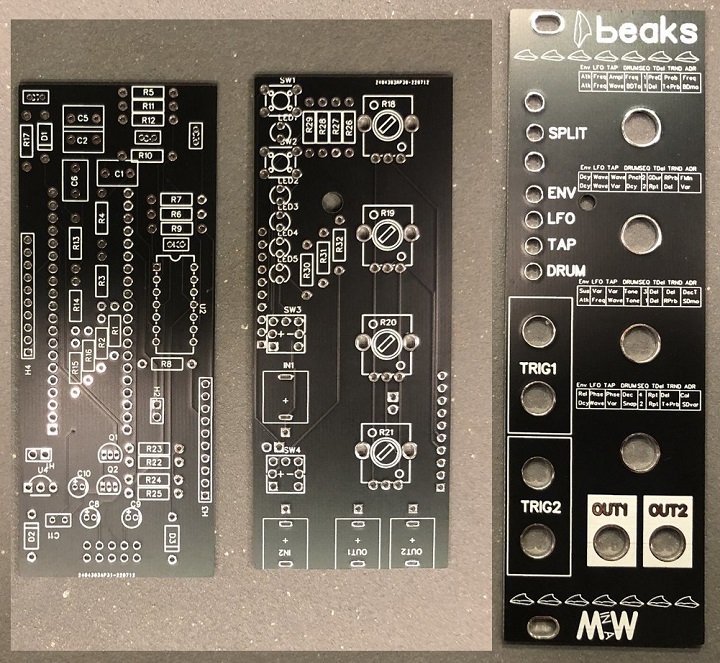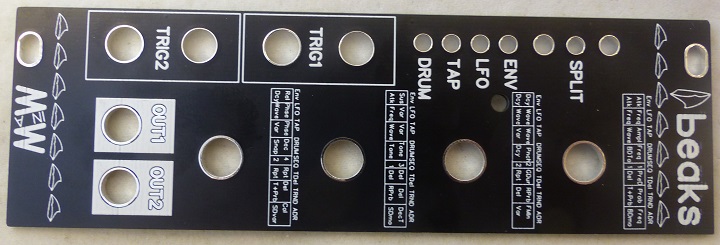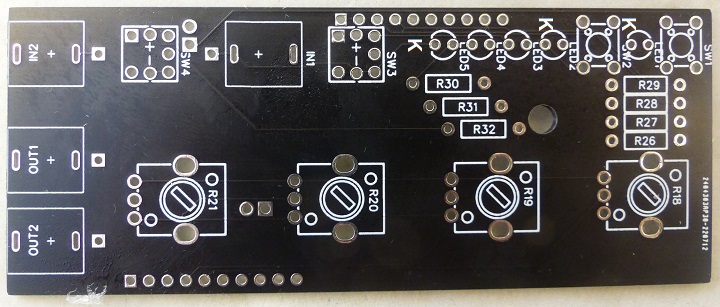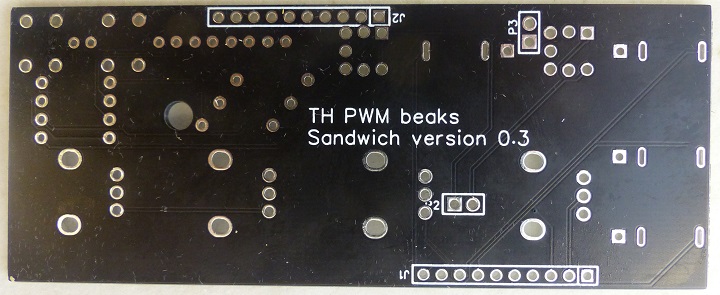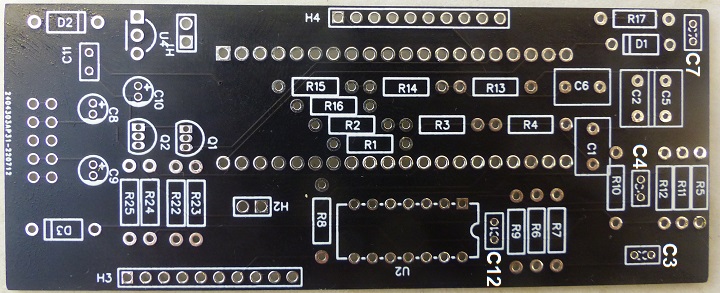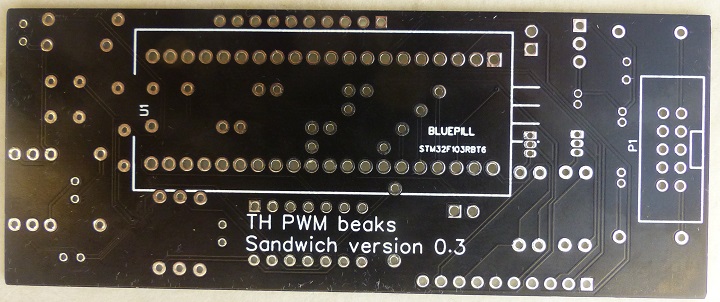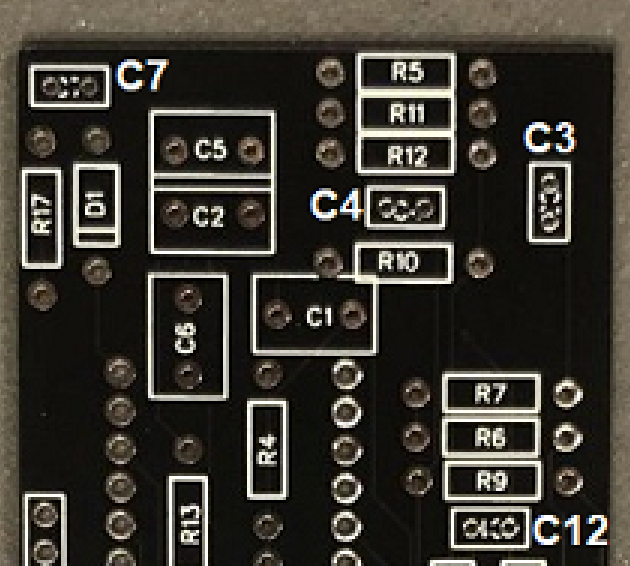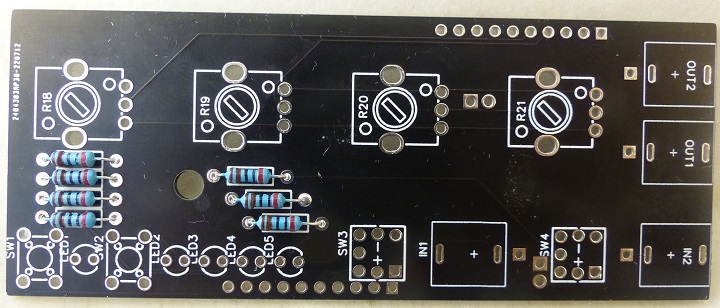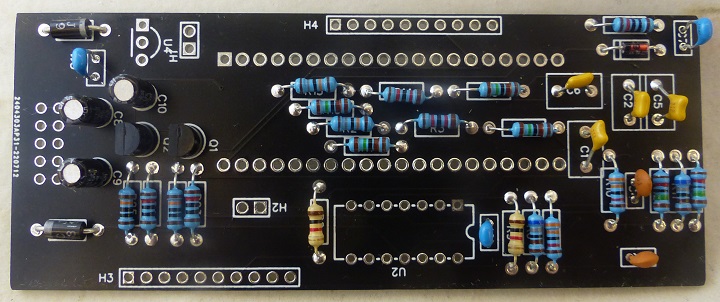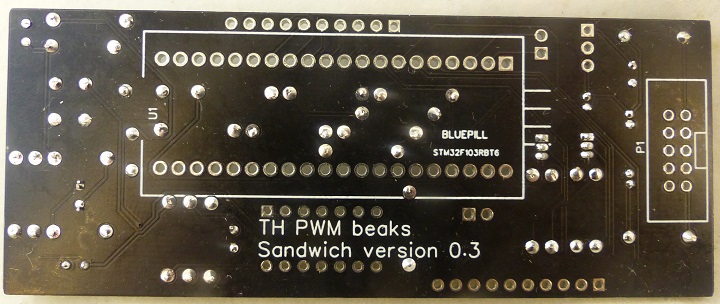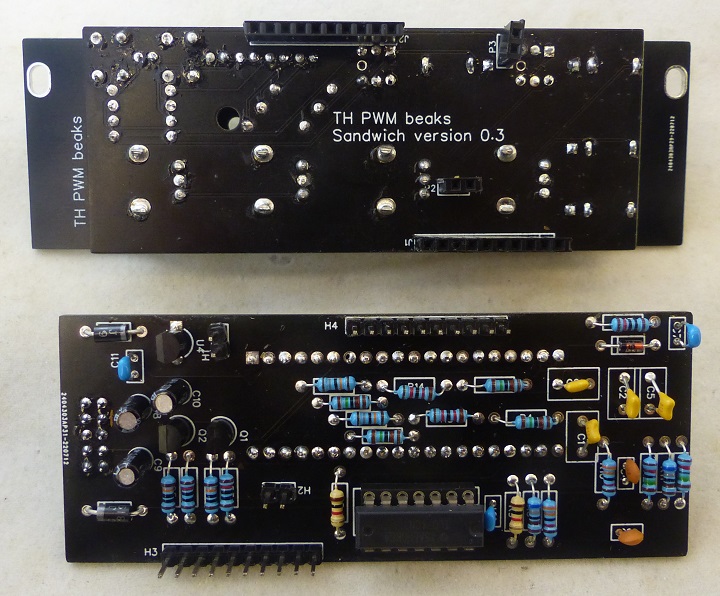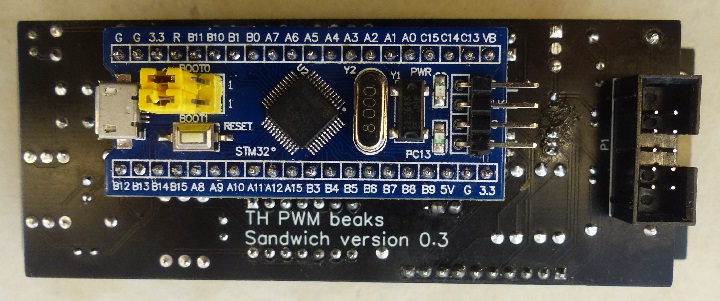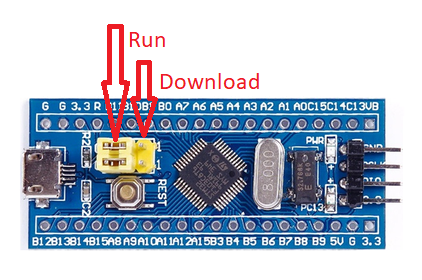Difference between revisions of "Beaks Through Hole Peaks"
Jump to navigation
Jump to search
Blwikiadmin (talk | contribs) |
Blwikiadmin (talk | contribs) |
||
| Line 178: | Line 178: | ||
[[File:Beaks_P1080903-720px.jpg]] | [[File:Beaks_P1080903-720px.jpg]] | ||
| + | |||
| + | * STM32 installed | ||
| + | |||
| + | [[file:Beaks_P1080906-720PX.jpg]] | ||
== Checkout == | == Checkout == | ||
Latest revision as of 15:30, 20 January 2023
Contents
Features
- Through hole version of Mutable Instruments Peaks module
- Acts as
- ADSR
- LFO
- Tap LFO
- Drum
- 4 step Sequencer
- Trigger Delay
- Trigger Randomizer
- Drum Synth
- Buttons
- (2) Manual Triggers - lighted buttons
- Inputs
- (2) Trigger
- Outputs
- 2 PWM Outputs
- Knobs
- Parameters - mode dependent
- Mode controls knob function
- Split (2 knobs each)
- Twin
- Expert
Credits/Resources
- Beaks Through-hole on Kristian Blåsol's Tindie
- Kristian Blåsol's GitHub
- Mathias Levy's Github
- Peaks Cheatsheet
Original Peaks
- Mutable Instruments Peaks page
- 8 HP
- 25mm depth
- +12V@60 mA, -12V@2mA
Original Peaks Features
- A SWISS-ARMY KNIFE FOR PERCUSSIVE PATCHES
- Peaks is a dual-channel module – making it very useful for duophonic patches or for controlling/synthesizing the kick/snare rhythmic backbone of a patch.
- Peaks provides 4 different functions in a small 8-HP package: ADSR, LFO / Tap tempo LFO, and drum synth.
- Their common point?
- They are all about generating an audio or CV signal in response to a trigger, and are all focused on rhythmic works.
- Four in one…
- ADSR envelope generator
- Segment durations ranging from 0.2ms to 8s.
- Quartic attack, exponential decay, exponential release.
- LFO and tap-tempo LFO
- 0.03 Hz to 160 Hz.
- 5 basic waveforms: square, triangle, sine, stepped, random.
- Waveform variations and morphing for each of these: PWM, slope, folding/harmonics, step size, interpolation.
- Phase at reset control.
- Tap LFO can lock onto irregular rhythms.
- Drum synth
- Channel 1: 808 kick model with extra parameters (tune, punch).
- Channel 2: 808 snare model with extra parameters (tune, decay).
- Channel 2: A specific combination of settings transform the snare into a modelled 808 hi-hat.
- Control modes
- Twin: Channel 1&2 share the same parameters but can be triggered independently.
- Split: Channel 1 is edited by knobs 1&2, channel 2 edited by knobs 3&4, with a simplified 2-parameter control scheme.
- Expert: Channel 1&2 are completely independent.
- Specifications
- Inputs: 100k impedance, threshold at 0.6V.
- 16-bit CV/audio generation with 48kHz sample rate.
- Output level: 0 to +8V for envelopes, 10Vpp for LFOs and drum signals.
STM32 "Blue Pill"
- STM32 Blue Pill
- "Blue Pill" Pins
- "Blue Pill" Schematic
Videos
Build PCB Pictures
- Front Panel - Front view
- Controls Card - Front view
- Controls Card - Rear view
- Processing Card - Front view
- Processing Card - Rear view
Build Notes
- Get the PCB set with panel and both PCBs for 9$ at Kristian's Tindie store
- Tindie store
- (Or) Download the Gerber files - sound-force page
- Front panel gerber by MyModularJourney
- Braids illustrated. all the waveforms explained
- Discord where you find the mi-th-braids channel and much more
- Gilet / Mutable Instruments Github for all her modules - SMT version
- Modular in a Week playlist
- Support Kristian's work on Patreon
- Kristian's Discord server - See mt-th-braids channel
Parts List Notes
- Parts List has JLCPCB part numbers
- SW1, SW2 - JLCPCB C620311 - Tactile Switch, 6mm, 14mm
- SW3, SW4 - JLCPCB C501573 - Illuminated switch (ordered along with PCB]
- LEDs have Green body when off, but light up in yellow when illuminated
- Can use 100K pots?
- The pots are used to set levels into the STM32 analog pins
- 5pcs Red Common Cathode 7 segment display - MAKE SURE TO CHOOSE COMMON CATHODE
- Get a STM32 Programmer here
- The STM32F103C8T6 is the 64kb version and thus too small but SOMETIMES they are 128kb
- STM32F013CBT8 (128kb version) on ebay... not that many to choose from :/
- Added cap ref des C3, C4, C7, C12
- Connectors are "Thonny" PJ398SM style connectors, aka WQP-WQP518MA
- LEDs go Kathode down
Build Pictures
- Controls card with resistors
- Analog Front side card with resistors, transistors, and caps
- Analog Rear side card with resistors
- 12.5mm Shaft pots and Jacks on controls card mounted to Front Panel
- PL calls for 15mm pots
- STM32 installed
Checkout
- Forgot to install U2 opamp
- Missed solder on OUT 1 connector tip
- Found short at Q2 from base to ground preventing TRIG2 from working
Testing
- OUT 1 and OUT 2 to ER-MIXER5-01 inputs
- Set mode to Drums by pressing top button (above SPLIT) silkscreen
- Mode LEDs should cycle between modes
- Press SPLIT pushbutton (below SPLIT silkscreen/LED)
- SPLIT LED should light
- Press TRIG 1 lighted pushbutton, lights when pressed and drum sound is heard
- Press TRIG 2 lighted pushbutton, lights when pressed and drum sound is heard
- Insert GATE signal into TRIG 1 jack
- Should make Foot Drum sound
- Insert GATE signal into TRIG 3 jack
- Should make Snare Drum sound
- All working
Software
- Mathias Levy's Github
- Tried beaks2 also
- More complicated user interface
Uploading Code to Blue Pill
- ST Link V2
- Before programming, set jumpers on Blue Pill module set towards center of card
- Use STMCubeProgrammer software to program card
- After programming, set jumpers on Blue Pill module set towards USB jack
